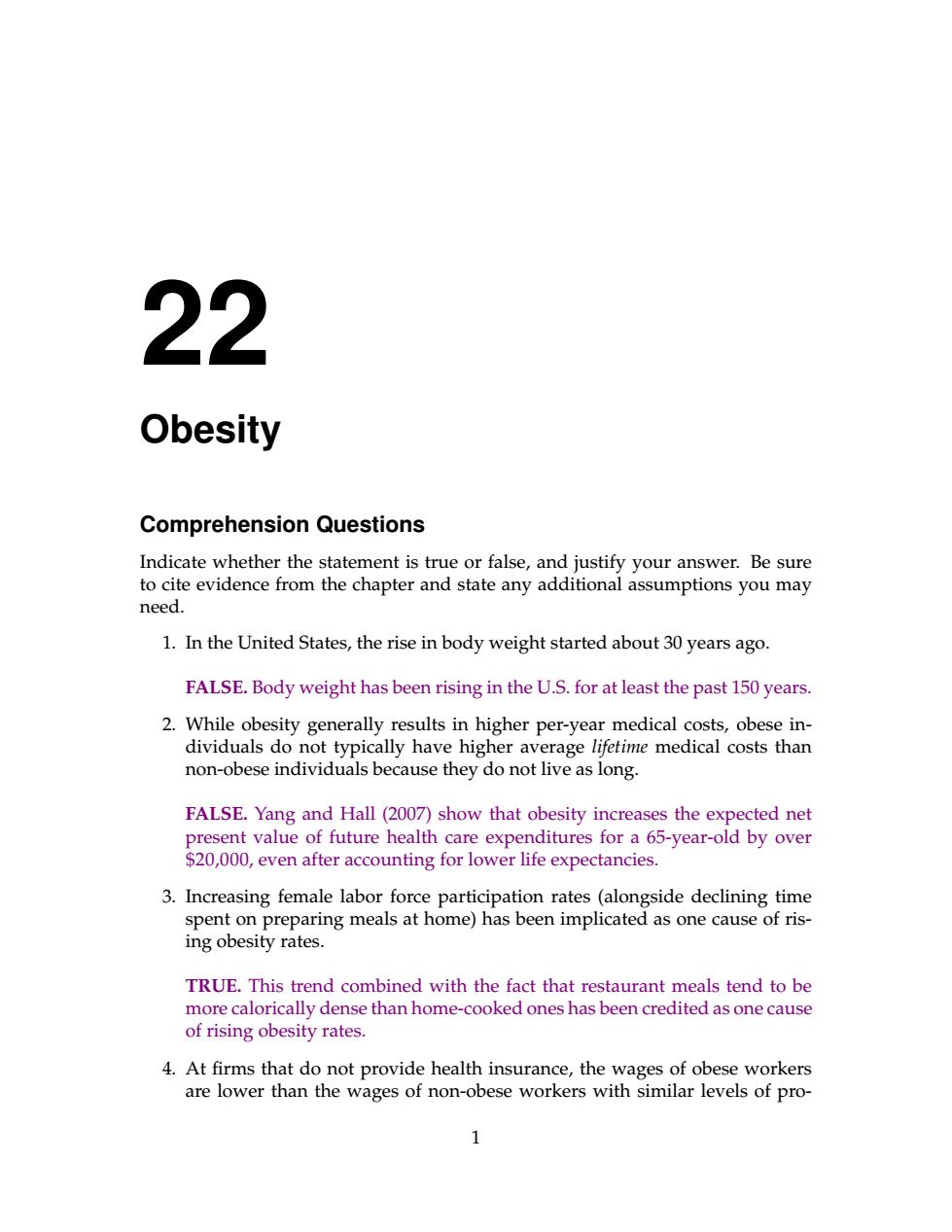正在加载图片...

22 Obesity Comprehension Questions Indicate whether the statement is true or false,and justify your answer.Be sure to cite evidence from the chapter and state any additional assumptions you may need. 1.In the United States,the rise in body weight started about 30 years ago. FALSE.Body weight has been rising in the U.S.for at least the past 150 years. 2.While obesity generally results in higher per-yea r medical costs,obese in- dividuals d. onobese individubecause thedno li ongdisthan typic FALSE.Yang and Hall (2007)show that obesity increases the expected net 3.Increasing female labor force participation rates (alongside declining time spent on preparing meals at home)has been implicated as one cause of ris- ing obesity rates. TRUE.This trend combined with the fact that re staurant m eals tend to be e calorically dense than home-cooke ed ones has been credited as one cause of rising obesity rates 4.At firms that do not provide health insurance,the wa es of obese workers oid jo sioM asaqo-uou jo sae Mol ae22 Obesity Comprehension Questions Indicate whether the statement is true or false, and justify your answer. Be sure to cite evidence from the chapter and state any additional assumptions you may need. 1. In the United States, the rise in body weight started about 30 years ago. FALSE. Body weight has been rising in the U.S. for at least the past 150 years. 2. While obesity generally results in higher per-year medical costs, obese individuals do not typically have higher average lifetime medical costs than non-obese individuals because they do not live as long. FALSE. Yang and Hall (2007) show that obesity increases the expected net present value of future health care expenditures for a 65-year-old by over $20,000, even after accounting for lower life expectancies. 3. Increasing female labor force participation rates (alongside declining time spent on preparing meals at home) has been implicated as one cause of rising obesity rates. TRUE. This trend combined with the fact that restaurant meals tend to be more calorically dense than home-cooked ones has been credited as one cause of rising obesity rates. 4. At firms that do not provide health insurance, the wages of obese workers are lower than the wages of non-obese workers with similar levels of pro- 1